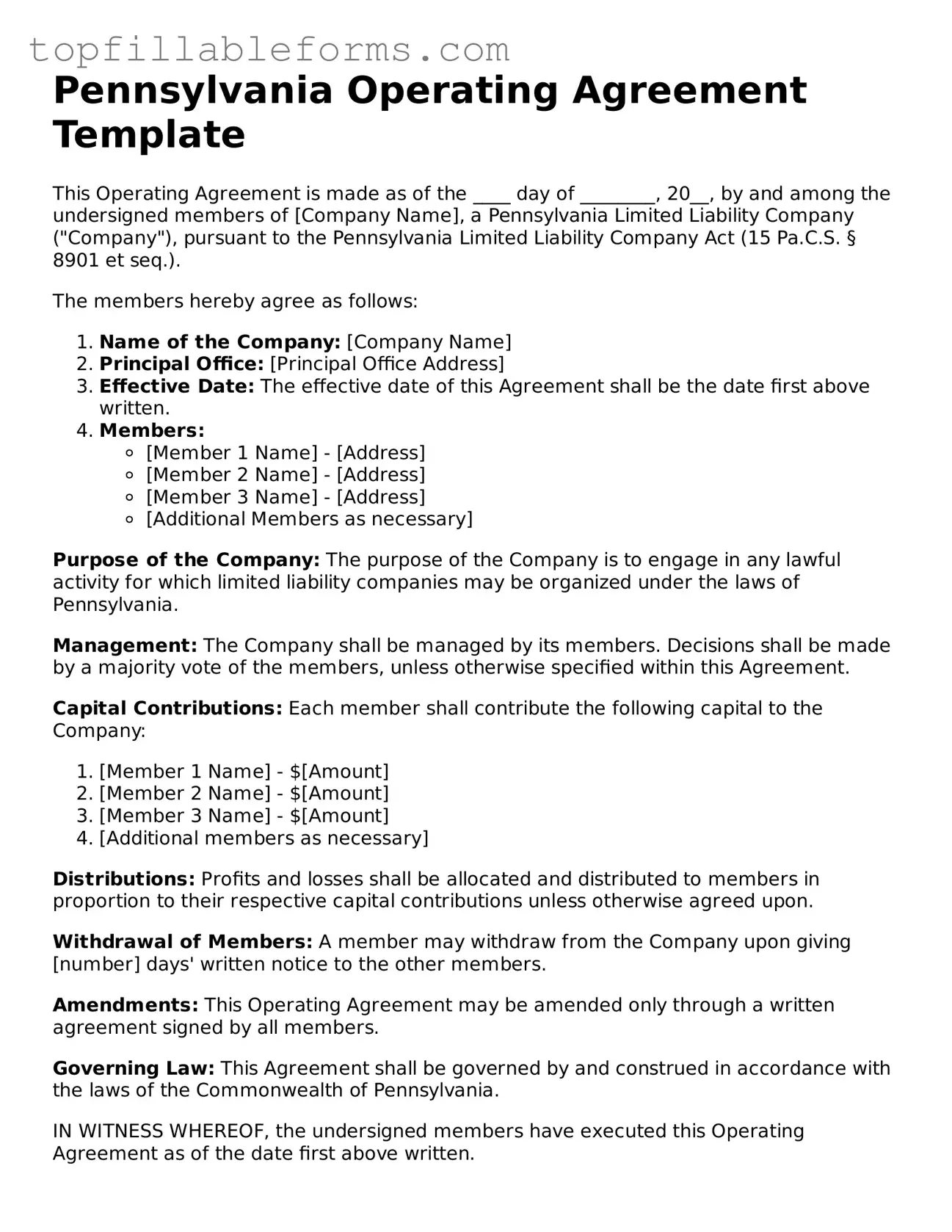Attorney-Verified Operating Agreement Template for Pennsylvania
The Pennsylvania Operating Agreement form is a crucial document for limited liability companies (LLCs) in the state. It outlines the management structure, member roles, and operational procedures of the business. Having a well-drafted agreement helps ensure clarity and protects the interests of all members involved.
Open Operating Agreement Editor Here

Attorney-Verified Operating Agreement Template for Pennsylvania
Open Operating Agreement Editor Here
Finish the form now and be done
Finish your Operating Agreement online by editing, saving, and downloading fast.
Open Operating Agreement Editor Here
or
▼ PDF File
